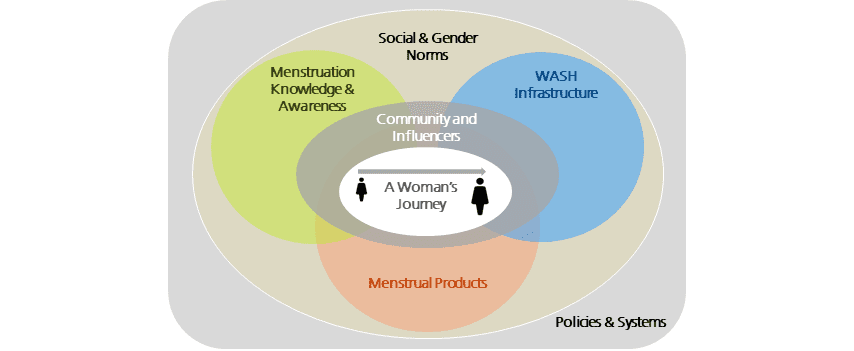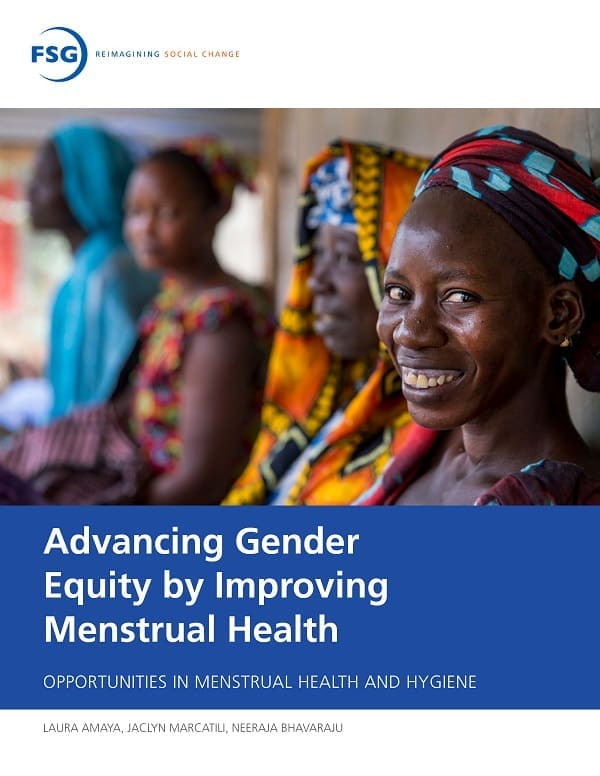Approximately one-quarter of the global population are women of reproductive age, most of whom menstruate every month.
A core function of a woman’s reproductive system, menstruation is a healthy and normal occurrence in the female body. However, it can—and often does—become a challenge when individuals lack access to the resources, infrastructure, and social support they need to appropriately manage it.
This new report captures key changes in the menstrual health and hygiene (MHH) space that have happened since the 2016 publication of An Opportunity to Address Menstrual Health and Gender Equity. We pay particular attention to the remaining gaps and highlight opportunities for further action and investment.
Top Takeaways
- Improving MHH for millions of women and girls around the world requires interventions to address a range of mutually reinforcing factors that affect an individual’s experience. These include knowledge about menstruation, access to a variety of menstrual hygiene products, appropriate sanitation facilities, and social and gender norms that ensure menstruation does not limit the daily lives and overall wellbeing of women and girls.
- Although some global datasets are starting to include MHH metrics in their surveys, there is no unified set of metrics to measure the scale of the challenge and understand nuances across contexts. This limits the level of funding for research and interventions focused on MHH, and hinders a comprehensive understanding of how MHH is linked to a range of life outcomes.
- Stigmas and taboos related to menstruation are pervasive and inhibit progress toward improved MHH. These harmful social norms are present within communities and at a systems level, and they contribute to shame and ignorance related to menstruation. Engaging men and boys is critical to addressing stigma and improving MHH for women and girls.
This report was funded by the Bill & Melinda Gates Foundation.




